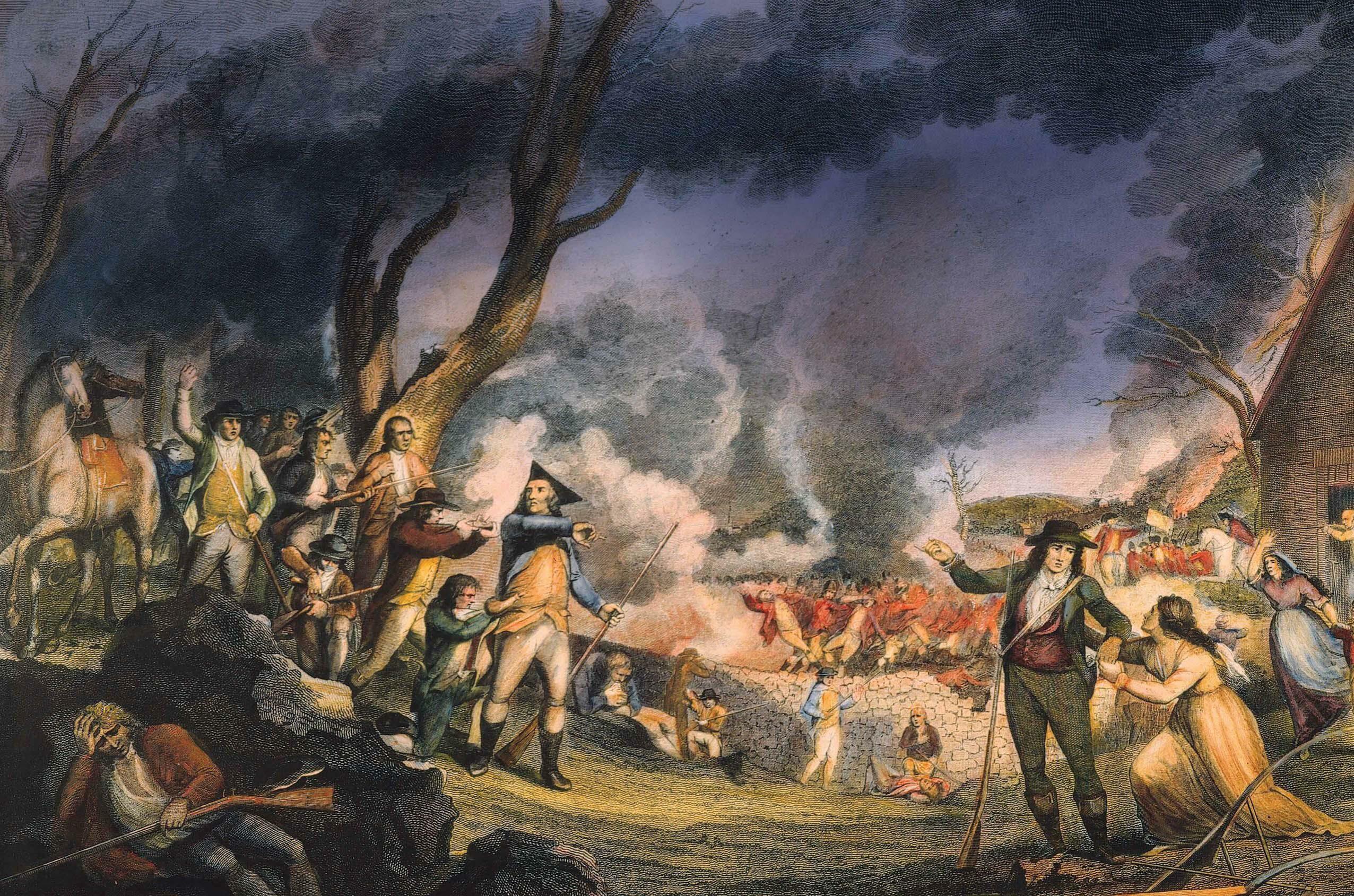Denemek ALTIN - Özgür
It was the shot heard around the world... But who fired it?
BBC History UK
|May 2025
It's 250 years since British troops clashed with American colonists at Lexington and Concord. George Goodwin reveals how one fateful day triggered the American Revolutionary War - and sparked a ferocious race to blame the other side
-

At 5am on 19 April 1775, two groups of British subjects faced each other across the town common of Lexington, 11 miles north-west of Boston, Massachusetts. One group was composed of local inhabitants, militiamen who would fight as Patriots. The other was of red-coated British troops under the immediate command of Marine Major John Pitcairn.
The militiamen were certainly not there by chance: the plans of General Gage, the British governor of Massachusetts, had been revealed to his opponents.
Simmering tensions over London's repeated assertions of control over its American colonies, dating back to the 1760s, had brought the two sides to this point. After a tense standoff, the Redcoats and militiamen traded fire. At the end of this brief but fateful exchange, eight Patriots lay dead.
A bloody retreat
Major Pitcairn and his men were just the vanguard of a 1,500-strong force under the overall command of Lieutenant Colonel Francis Smith. The colonel had a clear mission that day: to seize Patriot-held cannon and munitions in nearby Concord, the main town in Middlesex County and the centre for mobilising the county militia regiments of 6,000 men. And so, shortly after the clash at Lexington, Smith's Redcoats pushed on to Concord.
Hostilities were resumed at Concord's North Bridge at around 9am, shortly after the British had undertaken a largely fruitless search for weaponry to the west of the town. The intensity of the engagement now increased: colonist numbers had grown to around 400, with the local men now joined from surrounding areas by militia that included the elite Minutemen, whose name reflected their timely readiness for action.

Bu hikaye BBC History UK dergisinin May 2025 baskısından alınmıştır.
Binlerce özenle seçilmiş premium hikayeye ve 9.000'den fazla dergi ve gazeteye erişmek için Magzter GOLD'a abone olun.
Zaten abone misiniz? Oturum aç
BBC History UK'den DAHA FAZLA HİKAYE

BBC History UK
Hymn to life
Scripted by Alan Bennett and directed by Nicholas Hytner - a collaboration that produced The Madness of King George and The History Boys – The Choral is set in 1916.
1 min
December 2025

BBC History UK
Helen Keller
It was when I was eight or nine years old, growing up in Canada, and I borrowed a book about her from my local library.
2 mins
December 2025

BBC History UK
Spain's miracle
The nation's transition from dictatorship to democracy in the late 1970s surely counts as one of modern Europe's most remarkable stories. On the 50th anniversary of General Franco's death, Paul Preston explores how pluralism arose from the ashes of tyranny
8 mins
December 2025

BBC History UK
Just how many Bayeux Tapestries were there?
As a new theory, put forward by Professor John Blair, questions whether the embroidery was unique, David Musgrove asks historians whether there could have been more than one 'Bayeux Tapestry'
7 mins
December 2025

BBC History UK
In service of a dictator
HARRIET ALDRICH admires a thoughtful exploration of why ordinary Ugandans helped keep a monstrous leader in power despite his regime's horrific violence
2 mins
December 2025

BBC History UK
The Book of Kells is a masterwork of medieval calligraphy and painting
THE BOOK OF KELLS, ONE OF THE GREATEST pieces of medieval art, is today displayed in the library of Trinity College Dublin.
3 mins
December 2025

BBC History UK
Passing interest
In his new book, Roger Luckhurst sets about the monumental task of chronicling the evolution of burial practices. In doing so, he does a wonderful job of exploring millennia of deathly debate, including the cultural meanings behind particular approaches.
1 mins
December 2025

BBC History UK
Is the advance of AI good or bad for history?
As artificial intelligence penetrates almost every aspect of our lives, six historians debate whether the opportunities it offers to the discipline outweigh the threats
8 mins
December 2025

BBC History UK
Beyond the mirage
All serious scholarship on ancient Sparta has to be conducted within the penumbra of the 'mirage Spartiate', a French term coined in 1933 to describe the problem posed by idealised accounts of Sparta.
1 mins
December 2025

BBC History UK
He came, he saw... he crucified pirates
Ancient accounts of Julius Caesar's early life depict an all-action hero who outwitted tyrants and terrorised bandits. But can they be trusted? David S Potter investigates
10 mins
December 2025
Listen
Translate
Change font size

